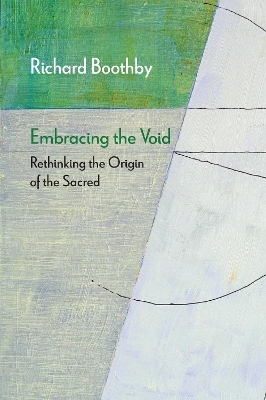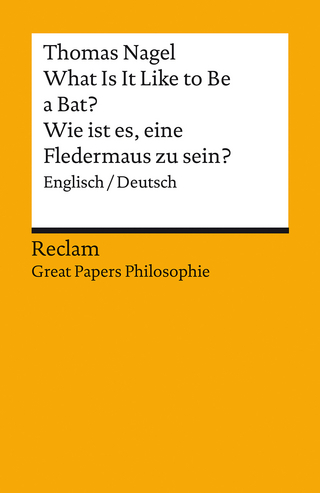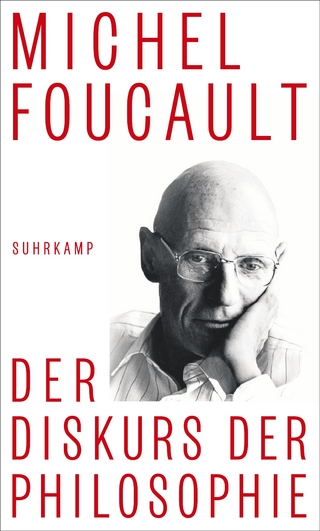
Embracing the Void
Rethinking the Origin of the Sacred
Seiten
2024
Northwestern University Press (Verlag)
978-0-8101-4539-9 (ISBN)
Northwestern University Press (Verlag)
978-0-8101-4539-9 (ISBN)
Lays out the range of Freud’s attempts at a psychoanalytic theory of religion and then sketches the rough contours of Lacan’s contrasting approach. From there, Boothby offers the theoretical tools for interpreting the religious impulse and analyzes key religious traditions.
A radical reinterpretation of the origin of religion through a psychoanalytic theorization of the unknown
Renowned psychoanalytic philosopher Richard Boothby puts forward a novel theory of religion inspired by Jacques Lacan’s theory of das Ding, the disquieting, inaccessible dimension of fellow human beings. This notion of an unfathomable excess, originally encountered in the figure of the mother, led Lacan to break with Freud’s formulation of the Oedipus complex and underlies Lacan’s distinctive conception of unconscious dynamics. Leaning on this account, Boothby shows how our sense of the sacred arises from our relation to what we do not know.
Embracing the Void lays out the range of Freud’s attempts at a psychoanalytic theory of religion and then sketches the rough contours of Lacan’s contrasting approach. From there, Boothby offers the theoretical tools for interpreting the religious impulse and analyzes key religious traditions, from ancient Greek polytheism to Judaism and Christianity, and from Hinduism and Buddhism to Islam, finally turning to modern capitalist culture and the seductive deity that dominates it—money. Lucid, accessible, and compelling, the book provides a cogent intervention in one of the psychoanalytic tradition’s most contentious topics and offers a new approach to our understanding of religion.
A radical reinterpretation of the origin of religion through a psychoanalytic theorization of the unknown
Renowned psychoanalytic philosopher Richard Boothby puts forward a novel theory of religion inspired by Jacques Lacan’s theory of das Ding, the disquieting, inaccessible dimension of fellow human beings. This notion of an unfathomable excess, originally encountered in the figure of the mother, led Lacan to break with Freud’s formulation of the Oedipus complex and underlies Lacan’s distinctive conception of unconscious dynamics. Leaning on this account, Boothby shows how our sense of the sacred arises from our relation to what we do not know.
Embracing the Void lays out the range of Freud’s attempts at a psychoanalytic theory of religion and then sketches the rough contours of Lacan’s contrasting approach. From there, Boothby offers the theoretical tools for interpreting the religious impulse and analyzes key religious traditions, from ancient Greek polytheism to Judaism and Christianity, and from Hinduism and Buddhism to Islam, finally turning to modern capitalist culture and the seductive deity that dominates it—money. Lucid, accessible, and compelling, the book provides a cogent intervention in one of the psychoanalytic tradition’s most contentious topics and offers a new approach to our understanding of religion.
Preface: Is Nothing Sacred?
Introduction: Reposing Freud’s Final Question
PART ONE: REREADING LACAN (or, WHAT IS THE OTHER?)
Chapter 1 Religion from Freud to Lacan
Chapter 2 The Abyss of The Other
Chapter 3 The Ex Nihilo of the Signifier
PART TWO: REREADING RELIGION (or, WHAT IS THE SACRED?)
Chapter 4 Greek Polytheism: The Worship of Force
Chapter 5 Judaism: The Worship of Law
Chapter 6 Christianity: The Worship of Love
Chapter 7 Other Gods
Chapter 8 Conclusions
| Erscheinungsdatum | 01.12.2022 |
|---|---|
| Reihe/Serie | Diaeresis |
| Verlagsort | Evanston |
| Sprache | englisch |
| Maße | 151 x 226 mm |
| Gewicht | 499 g |
| Themenwelt | Geisteswissenschaften ► Philosophie ► Philosophie der Neuzeit |
| Geisteswissenschaften ► Religion / Theologie | |
| ISBN-10 | 0-8101-4539-1 / 0810145391 |
| ISBN-13 | 978-0-8101-4539-9 / 9780810145399 |
| Zustand | Neuware |
| Informationen gemäß Produktsicherheitsverordnung (GPSR) | |
| Haben Sie eine Frage zum Produkt? |
Mehr entdecken
aus dem Bereich
aus dem Bereich


